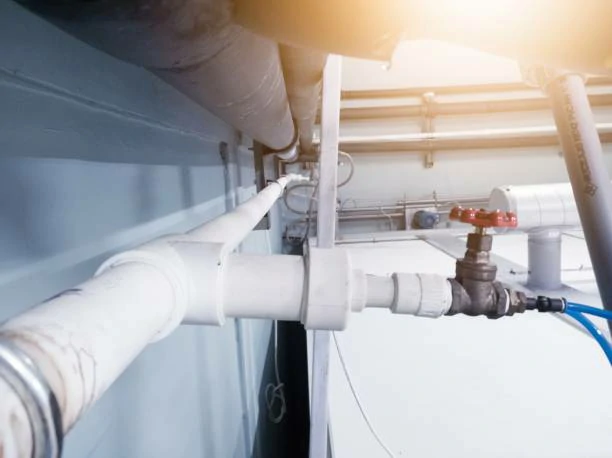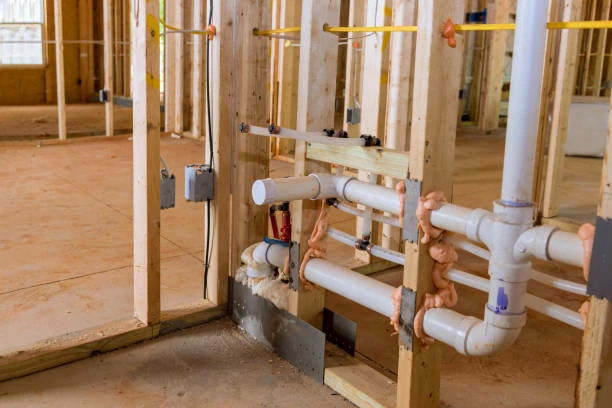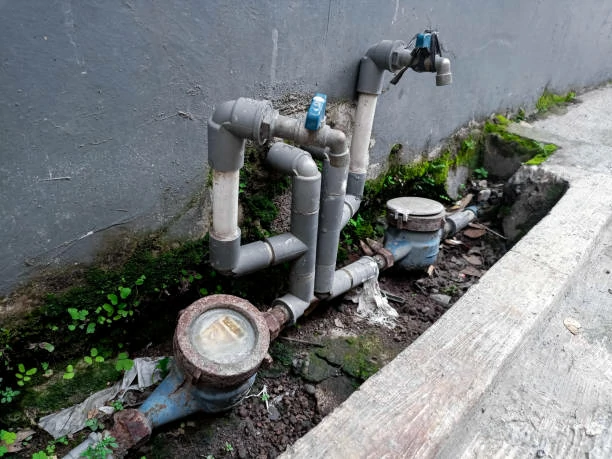Durability and Longevity:
PEX (cross-linked polyethylene) and PVC (polyvinyl chloride) are both durable materials for plumbing, but PEX is known for its flexibility and resistance to corrosion, while PVC can become brittle over time, especially in cold temperatures, leading to potential cracks or leaks.
Flexibility and Ease of Installation:
PEX is more flexible than PVC, making it easier to maneuver and install in tight spaces or around obstacles without the need for elbows or fittings. PVC, on the other hand, is rigid and requires precise measurements and fittings for installation.
Chemical Resistance:
PEX has excellent resistance to chemicals commonly found in plumbing systems, such as chlorine and acids, making it suitable for both hot and cold water applications. PVC is also chemically resistant but may degrade over time when exposed to certain chemicals or UV light.
Temperature and Pressure Ratings:
PEX has a higher temperature and pressure rating compared to PVC, making it suitable for use in high-temperature applications like hot water distribution and radiant heating systems. PVC is generally used for cold water applications and has lower temperature and pressure limits.
Cost Considerations:
PEX typically has a higher upfront cost compared to PVC, but its ease of installation and durability can result in long-term savings by reducing labor and maintenance costs. PVC is more affordable initially but may require more frequent repairs or replacements over time.
Environmental Impact:
PEX is considered more environmentally friendly than PVC due to its recyclability and lower energy consumption during manufacturing. PVC production involves the use of chlorine and generates toxic byproducts, while PEX production is cleaner and produces fewer emissions.
Noise Reduction:
PEX is known for its quiet operation compared to PVC, which can produce noise as water flows through the pipes due to its rigid nature. PEX absorbs vibrations and reduces water hammer, resulting in a quieter plumbing system.
Resistance to Freezing:
PEX has superior freeze resistance compared to PVC. PEX pipes can expand without cracking when frozen, reducing the risk of burst pipes and water damage, making it a preferred choice for cold climates or winterization applications.
Maintenance and Repairs:
PEX requires minimal maintenance and is less prone to leaks compared to PVC. In the event of a leak or damage, PEX can be easily repaired using simple tools and fittings, while PVC repairs may require more extensive work and replacements.
Regulatory Compliance:
Both PEX and PVC pipes must meet industry standards and regulatory requirements for plumbing applications. However, PEX has gained wider acceptance and approval from building codes due to its proven performance and reliability in various installations.
In summary, while both PEX and PVC have their advantages and disadvantages, PEX generally offers superior flexibility, durability, chemical resistance, and freeze resistance compared to PVC, making it a preferred choice for many plumbing applications, especially in residential and commercial settings.
Contact
We will reply your email or fax within 24 hours.
You can call us at any time if there is any question on our production.
For more information,pls visit our webside https://www.ifanplus.com/
Pls Mailto: [email protected]






